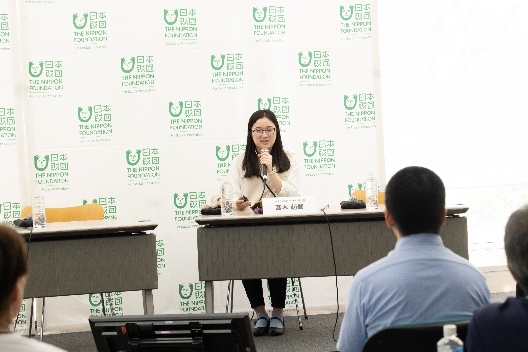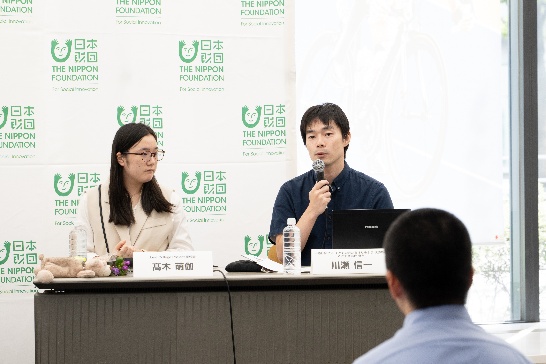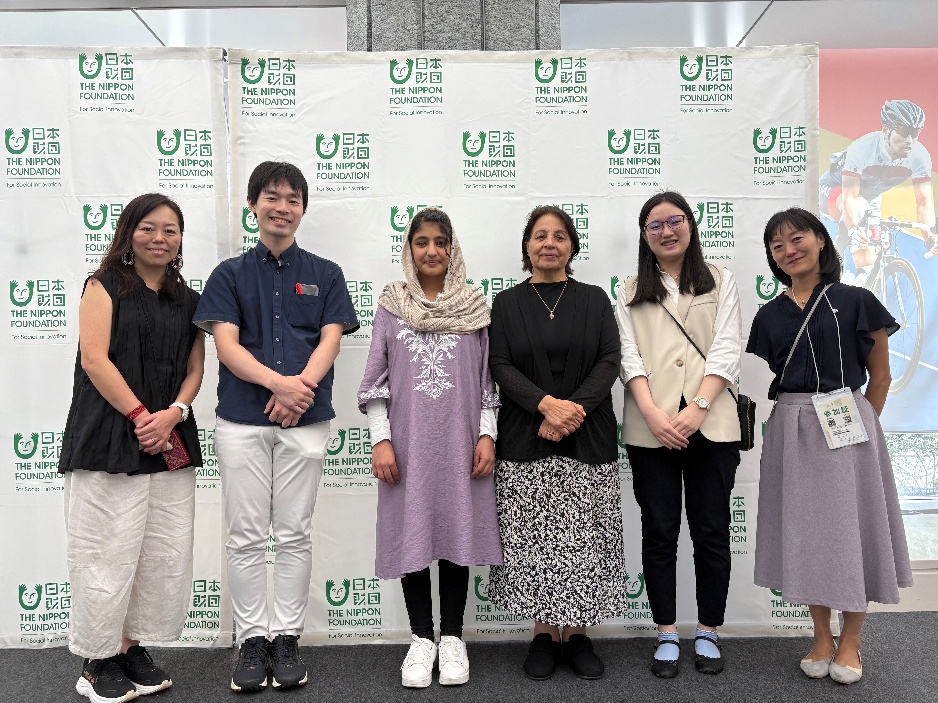![[Report] Children’s WEEKEND 2025 – Subsession 12 Report: “Embracing Diverse Voices in Schools and Communities.”](https://ftcj.org/wp/wp-content/uploads/2025/11/250926_1.jpeg)
[Report] Children’s WEEKEND 2025 – Subsession 12 Report: “Embracing Diverse Voices in Schools and Communities.”
On September 26–27, 2025, the Nippon Foundation hosted “Children’s WEEKEND,” a gathering to explore children’s rights, family welfare, and approaches to support. Free The Children Japan facilitated Subsession 12: “Embracing Diverse Voices in Schools and Communities.”
This 90-minute session centered on the theme: “Proposals for the Future, Bridging Lived Voices and Adult Responsibility.” Through children’s own stories and the perspectives of child advocates, participants were invited to reimagine what inclusive schools and communities can look like.
▼Speakers and Moderator
- Najla Lewal (1st-year student, Nagoya Municipal Junior High School)
Interpretation provided by Sultani Torpekai, Representative, “School of Hope” - Moka Takagi (Associate Representative, Leaf College Project)
- Shinichi Kawase (Executive Director, Let’s Start with Children’s Voices Association)
- Moderator: Sanae Nakajima (Chairperson, Certified NPO Free The Children Japan)
▼At the beginning of the session…
Moderator Sanae Nakajima opened with an introduction to Free The Children Japan’s work. She shared the organization’s guiding belief: “Children are not merely recipients of support—they are agents of change.” Under this motto, the organization operates its programs in close partnership with children themselves.

Next, Moka Takagi introduced the work of the Leaf College Project. She shared how children themselves are actively engaged in communicating about children’s rights. At the heart of this initiative lies a sense of discomfort—a deep awareness that many important realities remain unknown or overlooked.

Najla Lewal shared her experiences of restricted access to education in Afghanistan, the sense of surprise she felt upon arriving in Japan, and the joy of being able to attend junior high school. What struck her most was that women in Japan can move freely—and that girls are able to go to school as a matter of course.

Shinichi Kawase spoke about his work as a child advocate and emphasized the importance of creating systems in which children are respected as partners alongside adults.
▼What Does It Mean to “Raise Your Voice”?
During the cross-talk segment, each speaker shared their perspective on what it means to speak up.
- Moka reflected on the anxiety she felt before raising her voice, and the changes that followed once she did.
- Najla expressed her joy in being able to speak at the event, saying, “I’m happy to be able to share my thoughts today,” and “It’s empowering to have a space where I feel safe to speak.”
- Mr. Kawase emphasized that children’s voices matter—regardless of language or background—and spoke about the importance of building communities where children feel safe and supported.
▼What Do Children Want to Speak Up About Now?
Moka revisited her concern that children’s rights are not being taught in schools, and shared her passion for empowering children to communicate those rights themselves. Drawing from her own experience, she emphasized that children can only exercise their rights once they understand what those rights are and know they exist.
Najla shared that while she is happy to be able to attend school, she feels anxious because she cannot understand the lessons due to the language barrier. When asked whether she had ever shared this concern with anyone, she quietly revealed, “No one has ever asked me, so I’ve never told anyone.”
Through the voices of Najla and Moka, the session illuminated how difficult it can be for children to express their struggles—and how few spaces exist where those voices are truly heard.
▼Emerging Challenges and Insights
Through Najla’s courageous remarks, two key issues came into focus: the lack of public educational support for children with overseas roots in Japan, and the rigidity of a system that ties school grade strictly to age—often misaligned with individual learning needs.
The session also highlighted practices in countries like Canada and Germany, where children living as immigrants receive tailored support, such as language acquisition programs and flexible grade placement. These examples revealed important lessons Japan can learn in building more inclusive educational environments.
▼Reflections at the Close of the Session
Each speaker’s words and heartfelt insights offered valuable clues for realizing children’s rights in practice.
We sincerely hope that the voices shared in this subsession will serve as a step toward building a society where no child is left behind. May the words spoken by children themselves become central to shaping the future of our schools and communities.
As Free The Children Japan, we remain committed to walking alongside diverse organizations and local partners to help create a society where children’s voices are truly heard and honored.

In Closing
We would like to express our heartfelt gratitude to Sumire Kanda, who helped connect us with Najla and continues to support children with overseas roots.
Thanks to Ms. Kanda’s warm and generous cooperation, Najla’s powerful voice was able to reach participants in this subsession. We extend our deepest appreciation once again.
(From right in the photo: Ms. Kanda, Moka, Sultani, Najla, Mr. Kawase, Sanae)
